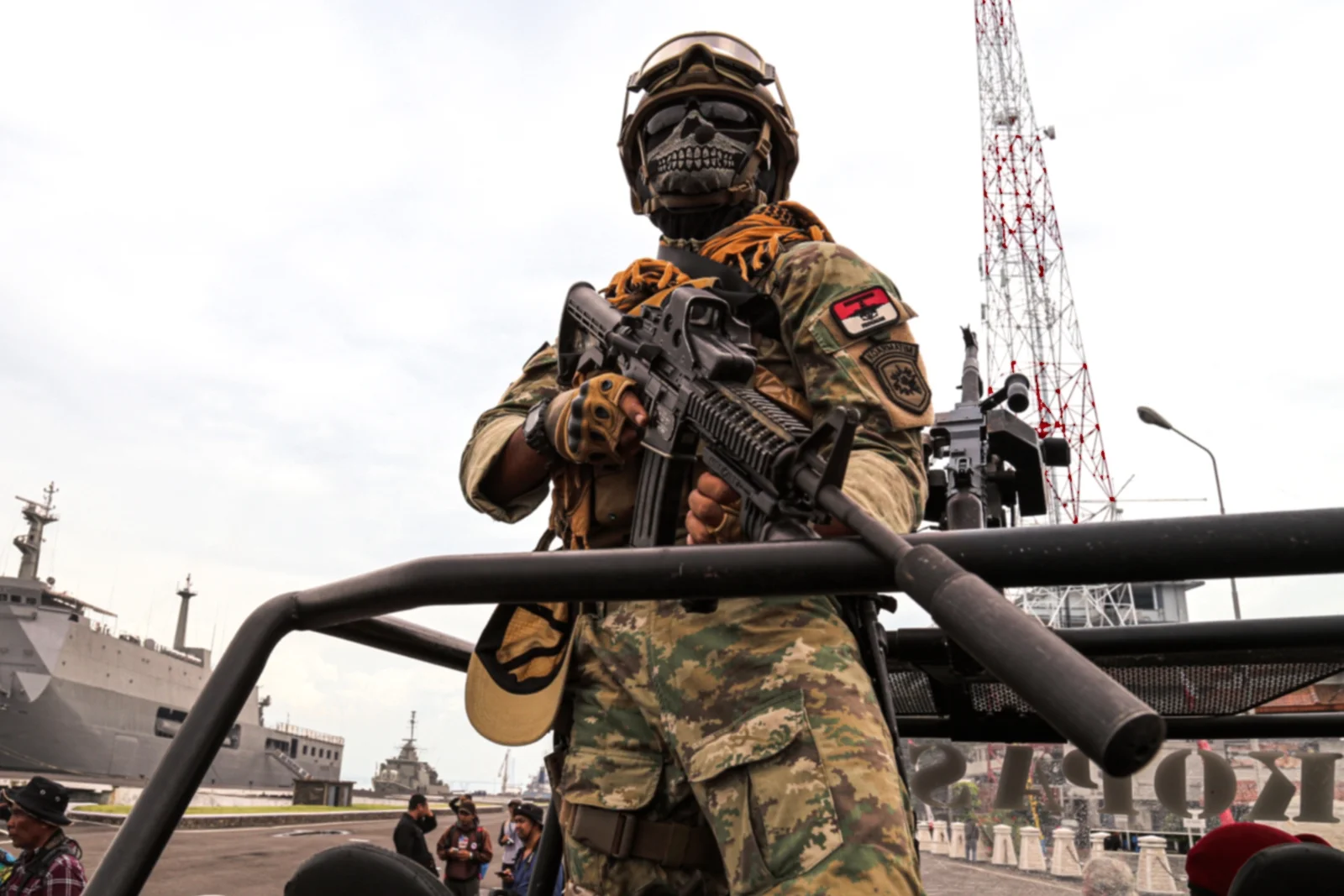
Has Indonesia Joined the South China Sea Fray?
On November 13, during a routine press conference in Washington, Indonesia’s newly inaugurated President, Prabowo Subianto, dropped a statement that could potentially mark a pivotal shift in the South China Sea’s contentious dynamics. “We respect all powers, but we will always safeguard our sovereignty,” Prabowo asserted when asked about regional tensions. He tempered his stance by adding, “I choose to always find possibilities of a partnership.”
This seemingly measured response is laden with implications. Traditionally, Indonesia has kept a deliberate distance from the stormy debates over the South China Sea’s territorial and resource claims. Yet, Prabowo’s comments may hint at a break from Jakarta’s historically cautious approach. At a time when disputes over this critical maritime region have reached fever pitch, the remarks could signal a recalibration of Indonesia’s foreign policy playbook.
The South China Sea has long been a hotbed of geopolitical tension. China’s aggressive pursuit of mineral rights and territorial control—anchored by its infamous nine-dash line—has transformed the region into a quasi-Cold War theater. This sweeping claim encompasses lucrative shipping routes and vital resources, placing Beijing in direct conflict with rival claimants like Vietnam and the Philippines. Indonesia, despite its status as a regional power, has until now maintained a stance of studied neutrality. Prabowo’s words, however, suggest Indonesia might be preparing to assert itself, angling for a greater stake in this high-stakes geopolitical contest.
Still, the precise implications of Prabowo’s remarks remain opaque. For decades, Indonesia has insisted it has no territorial disputes in the South China Sea. As recently as two days before Prabowo’s comments, Indonesia’s foreign ministry reiterated, “Those [Chinese] claims have no international legal basis.” However, his statement might also serve as a subtle rebuke to Beijing, especially given recent maritime confrontations. In October, a Chinese Coast Guard vessel disrupted the operations of an Indonesian civilian ship conducting lawful research, prompting three separate Indonesian warnings.
Complicating matters is Prabowo’s delicate diplomatic dance with China. His recent state visit to Beijing yielded $10 billion in trade agreements and economic partnerships, underscoring Jakarta’s economic reliance on its northern neighbor. Yet, Indonesia maintains that its maritime borders remain unaffected by China’s expansive territorial claims.
If Indonesia does choose to step off the sidelines, it wields an array of tools that could reshape the region’s power dynamics. Central to this is its formidable naval force, ranked the fourth strongest behind the United States, China, and Russia. The fleet comprises over 240 units, including seven modern frigates and 25 corvettes—primarily of German and Dutch origin. Its arsenal also includes three South Korean-built Nagapasa-class submarines, advanced diesel-electric vessels capable of month-long missions. Though Jakarta’s fleet includes aging anti-mine ships, these vessels provide critical countermeasures in a potential conflict.
Indonesia has demonstrated a commitment to upgrading its naval capabilities. In 2023, the government launched an ambitious refurbishment program targeting over 40 ships. “There will be refurbishment of our warships, especially the old ones, and some of them will undergo mid-life modernization,” Admiral Muhammad Ali announced, emphasizing domestic shipyards’ involvement in the project. By prioritizing homegrown resources, Indonesia aims to reduce reliance on costly imported equipment while modernizing its maritime defenses.
The question now is how Indonesia’s evolving stance might manifest in practice. It could adopt a more assertive posture, increasing naval patrols or emulating the island-building strategies of Vietnam and China. Alternatively, Jakarta might opt for a diplomatic course, leveraging its influence to push for renewed international arbitration over the region’s disputed claims.
Whether Prabowo’s remarks represent a calculated shift or a diplomatic slip, they demand scrutiny from regional analysts and policymakers. Should Indonesia stake its claim in the South China Sea, it could fundamentally alter the contours of a conflict already teetering on the brink of escalation.
